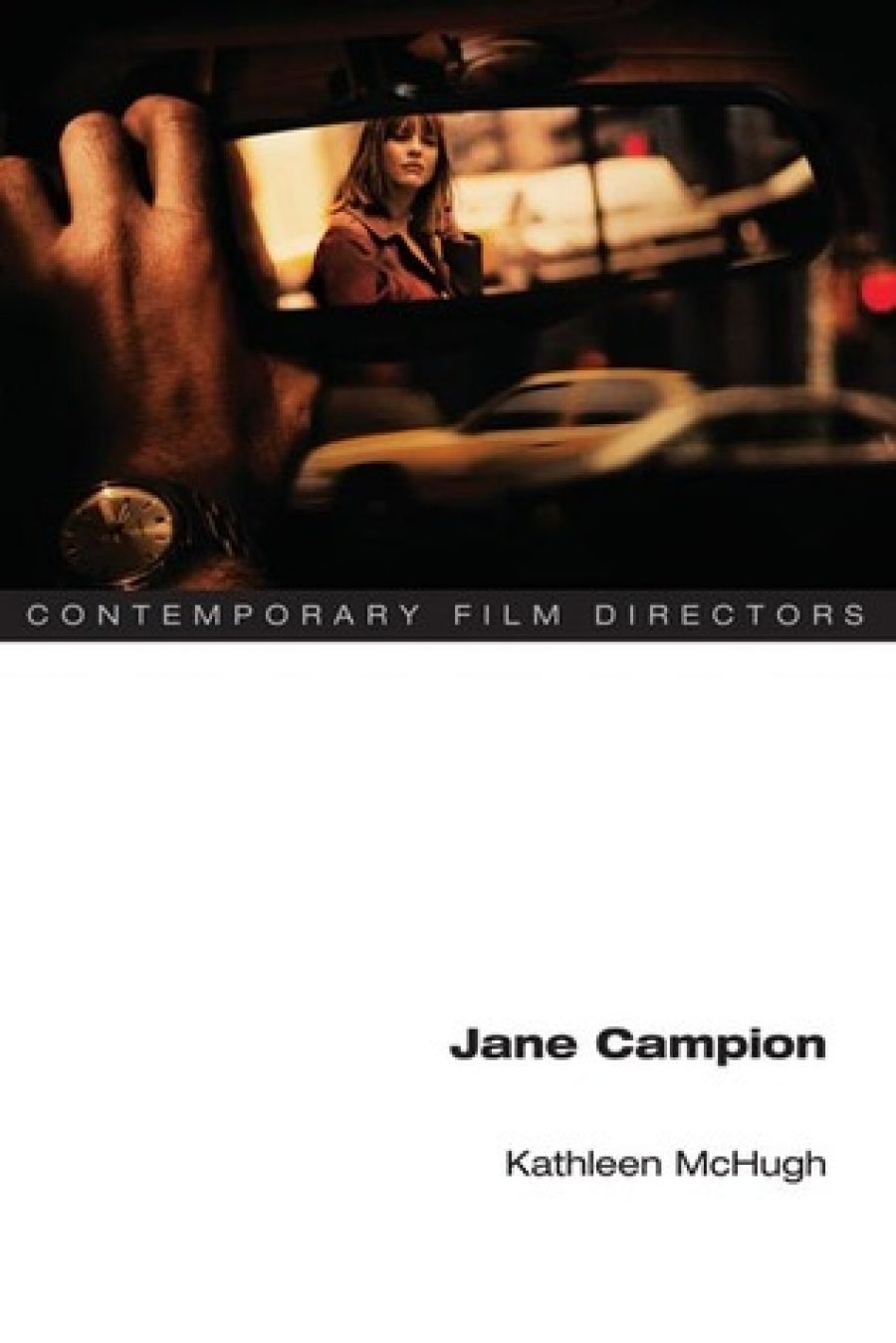
- Free Article: No
- Contents Category: Film
- Review Article: Yes
- Online Only: No
- Custom Highlight Text:
The third full-length English-language study of the films of Jane Campion is a book that will probably be of more interest to the dedicated student than to the general reader. The American scholar Kathleen McHugh is a stiff though clear and conscientious writer who takes care to make her research visible and to spell out any possibly unfamiliar ideas. She has the academic knack for seizing upon parallels, oppositions and ironies, and working through their permutations. Writing, for example, of Campion’s early preoccupations with ethnography and surrealism, she notes that ‘the two form a matched set, ethnography setting out to make the strange ... familiar, surrealism endeavouring to make the familiar strange’. Having set forth a handful of ‘reversible’ concepts of this kind, McHugh goes on to apply them to each of Campion’s films in turn: the bulk of the book proceeds chronologically from the early shorts to the recent In the Cut (2003), incorporating extensive plot summary and ‘thick description’.
- Book 1 Title: Jane Campion
- Book 1 Biblio: University of Illinois Press, $37.95 pb, 184 pp
Happily, McHugh proves to be a good practical critic. She gives a detailed and convincing account of the dream-like logic of Campion’s narratives, which tends to be associative rather than causal, with one character often ‘irrationally’ mimicking the behaviour of another. She provides many instances of shots and sequences that blur objective and subjective perspectives, roughly aligning the former with ethnography and the latter with surrealism.
Caught between their often masochistic desires and their need for self-fulfilment, Campion’s heroines tend to make ‘bad’ or ‘perverse’ choices: the perversity, perhaps, is that they could realise themselves in no other way. McHugh’s most sustained argument – derived from Nietzsche via Foucault via the feminist writer Wendy Brown – is that Campion’s films provide a model for a version of feminism that would reject morality and the search for truth in favour of pragmatic, political ‘wars of position’. This sounds both right and wrong, or rather, it is as if McHugh is recommending a particular strategic use for films that could also be turned to other purposes. It is true that Campion rarely moralises, and that her films are deeply, if hardly straightforwardly, informed by feminism. But for all her ironic gestures, Campion is plainly as enthralled as she is troubled by the romantic myths she restages.
Occasionally, McHugh’s need to ‘save’ Campion for feminism carries her too far, as in her discussion of the ending of The Piano (1993), which sees the formerly mute heroine Ada (Holly Hunter) married off to the ex-whaler Baines (Harvey Keitel) and seemingly relinquishing her will to power. According to McHugh:
the click, click, click of the metal fingertip that mars Ada’s once harmonious and intersubjective sound, the drawbacks of Baines as a partner, and the oddity of the narrative’s irresolution satisfy precisely because they all lack the ring of truth, the resolute closure of a moral story.
This seems overstated, since, of all Campion’s films, The Piano is the one that provides nearly all the traditional satisfactions of melodrama (not coincidentally, it also remains her biggest commercial success). ‘It’s a very good romance novel done as cinema,’ was the verdict of the science-fiction writer Gene Wolfe, who should know a thing or two about the uneasy way critics often feel obliged to argue that their favourite works of art transcend or subvert popular genres.
Rather than maintaining that the ending satisfies because it doesn’t, I am inclined to agree with Gail Jones, who suggests in her sensitive recent monograph on The Piano (which I reviewed in the September 2007 issue of ABR) that Campion manages to have things both ways. Having returned to a modest version of civilisation, Ada is permitted to live happily ever after with Baines; but the ‘weird melody’ that runs through her head at night still belongs to her alone.
McHugh, like many contemporary scholars, has difficulties with evaluation, faced as she is with the necessity that her judgments hold water both aesthetically and politically (even as morality is eschewed). Unlike Dana Polan in his useful study, Jane Campion (2002), she never pauses to wonder if Campion’s attachment to the trappings of ‘high art’ might reflect a certain cultural snobbery. Nor does she point out that all Campion’s films after An Angel at My Table (1990) are vehicles for movie stars whose mystique tends to set them ‘above’ the fictions they inhabit, whether or not they are invested with onscreen glamour.
While McHugh seems comfortable using words such as ‘astute’ and ‘stunning’ to describe Campion’s artistry, she is much less ready to argue that some of the films are more successful than others, or, indeed, that any could be limited or flawed. Yet to position Campion as an exemplary figure runs counter, in the end, to everything interesting the book has to say about her work. It would be odd if, in the course of her career, this adventurous director had not herself made a few ‘bad choices’.


Comments powered by CComment